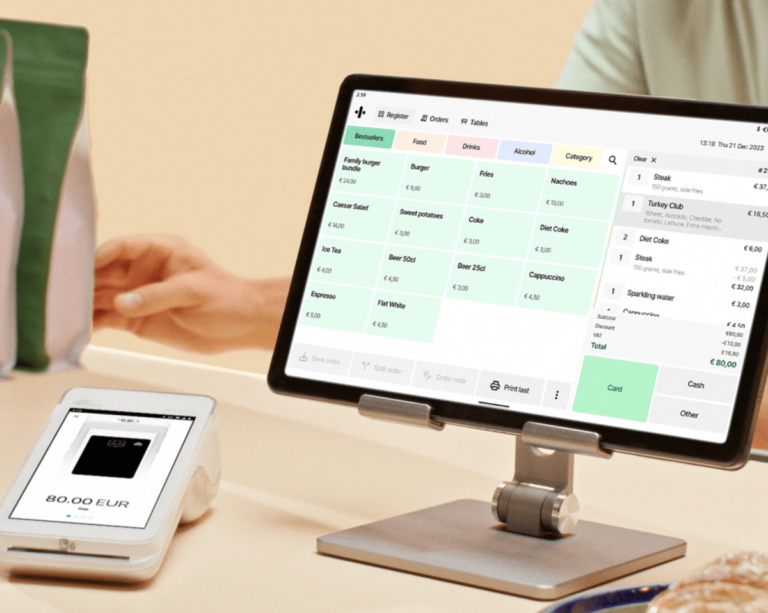
The company Wednesday issued an email requesting customers discontinue use of its egg-shaped charging case.
The company says it launched an investigation following a “single complaint” of a charging issue from a customer.
Humane is far from the first consumer electronics company to ship products with potentially hazardous batteries.
According to the note, the Charge Case is the only Humane product affected by this news.
Neither its Battery Boost or Charging Pad have been singled out by the company.

French AI startup Mistral is introducing new AI model customization options, including paid plans, to let developers and enterprises fine-tune its generative models for particular use cases.
Mistral has released a software development kit (SDK), Mistral-Finetune, for fine-tuning its models on workstations, servers and small datacenter nodes.
For developers and companies that prefer a more managed solution, there’s Mistral’s newly launched fine-tuning services available through the company’s API.
Compatible with two of Mistral’s models for now, Mistral Small and the aforementioned Mistral 7B, Mistral says that the fine-tuning services will gain support for more of its models in the coming weeks.
Lastly, Mistral is debuting custom training services, currently only available to select customers, to fine-tune any Mistral model for an organization’s apps using their data.

Today, Webflow announced that it acquired Intellimize, a startup leveraging AI to personalize websites for unique visitors.
The majority of the Intellimize team — around 50 people — will join Webflow.
Vlad Magdalin, the CEO of Webflow, said Intellimize was a natural fit for Webflow’s first-ever acquisition because its product meets a need many Webflow customers share: personalizing and optimizing their websites.
Intellimize will continue to be sold standalone to non-Webflow customers, but it’ll increasingly link to — and integrate with — Webflow services.
— personalization product efforts at Webflow.

CRED has received the in-principle approval for payment aggregator license in a boost to the Indian fintech startup that could help it better serve its customers and launch new products and experiment with ideas faster.
The RBI has granted in-principle approval for payment aggregator licenses to several companies, including Reliance Payment and Pine Labs, over the past year.
Typically, the central bank takes nine months to a year to issue full approval following the in-principle approval.
Without a license, fintech startups must rely on third-party payment processors to handle transactions, and these players may not prioritize such mandates.
Obtaining a license allows fintech companies to process payments directly, reduce costs, gain greater control over payment flow, and onboard merchants directly.

In one of the latest developments, Danish company Flatpay, which builds payment solutions for small and medium physical merchants like shops, restaurants and salons, has raised €45 million ($47 million) led by Dawn Capital.
Founded in 2022, Flatpay currently has just 7,000 customers across its current footprint of Denmark, Finland and Germany.
Perhaps most interestingly, on the sales side, despite its focus on streamlined technology, Flatpay only sells via live sales visits.
No online sales (although there are specialists who will help arrange those in-person sales visits and handle support), no virtual visits, and no plans to introduce either.
And the only way they could understand the products really well was by the company paring down the products themselves.

Hotel chain giant Omni Hotels & Resorts has confirmed cybercriminals stole the personal information of its customers in an apparent ransomware attack last month.
In an update on its website posted on Sunday, Omni said the stolen data includes customer names, email addresses, and postal addresses, as well as guest loyalty program information.
The company said the stolen data does not include financial information or Social Security numbers.
Ransomware gangs typically use such dark web sites to publish stolen information to extort a ransom from their victims.
A sample of the stolen data shared with DataBreaches.net matched the types of customers’ personal information that Omni said was taken.

Spotify isn’t the only one to dabble with AI playlists — on Tuesday, Amazon announced it would do the same.
Amazon Music is now testing Maestro, an AI playlist generator, allowing U.S. customers on both iOS and Android to create playlists using spoken or written prompts, which can even contain emojis.
Amazon suggests that in addition to emojis, customers can write prompts that include activities, sounds, or emotions.
While Spotify’s AI generator is starting its tests in the U.K. and Australia, Amazon’s product is launching to a “subset” of free Amazon Music users, as well as Prime customers and Unlimited Amazon Music subscribers on iOS and Android in the U.S. for the time being.
To access Maestro, users will need the latest version of the Amazon Music mobile app and will tap on the option for Maestro on their home screen.

The startup charges a listing fee (subscription fee) to publish jobs on the platform and a success fee when a hire is made.
“The listing fee ensures buy-in from startups to the two-way marketplace and a commitment to the recruiters they’re working with,” Kim said.
In addition to early- and late-stage startups, Kim said the platform also works with larger in-house talent teams to fill challenging roles.
“More than 50% of our customers have great in-house talent teams, but they continue to post roles on Paraform.
“We’re already branching out into research, science, manufacturing and defense roles due to the demand we’re seeing from potential customers,” Kim said.

How PayJoy built a $300M business by letting the underserved use their smartphones as collateral for loansLerato Motloung is a mother of two who works in a supermarket in Johannesburg, South Africa.
Then, in February 2024, she saw a sign about PayJoy, a startup that offers lending to the underserved in emerging markets.
Motloung is one of millions of customers that San Francisco–based PayJoy has helped since its 2015 inception.
And, unlike other startups offering loans to the underserved, it’s doing so in a way that’s not predatory, it says.
Last September, PayJoy announced that it had secured $150 million in Series C equity funding and $210 million in debt financing.

U.S. cybersecurity agency CISA is warning Sisense customers to reset their credentials and secrets after the data analytics company reported a security incident.
CISA said it urges Sisense customers to “reset credentials and secrets potentially exposed to, or used to access, Sisense services” and to report any suspicious activity involving the use of compromised credentials to the agency.
Founded in 2004, Sisense develops business intelligence and data analytics software for big companies, including telcos, airlines and tech giants.
Companies like Sisense rely on using credentials, such as passwords and private keys, to access a customer’s various stores of data for analysis.
With access to these credentials, an attacker could potentially also access a customer’s data.













